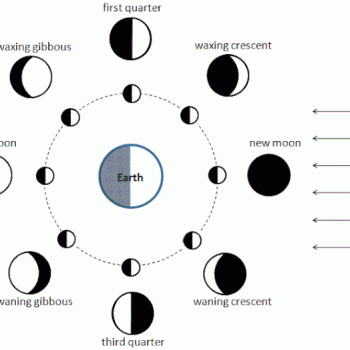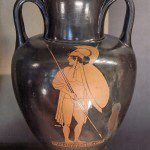
Joshua 1:9 - Bible Verse and Perspectives
Joshua 1:9 reads: "Have I not commanded you? Be strong and courageous. Do not be frightened, and do not be dismayed, for the LORD your God is with you wherever you go."
The Book of Joshua continues the historical narrative started in the Torah (or “5 books of Moses”). Joshua 1:9 occurs right after the leadership of the Israelites has passed from Moses to Joshua. God has commissioned the new prophet to lead the Israelites in the conquest of Canaan, a mission filled with potential danger and uncertainty. This verse embodies the courage, faith, and leadership that would be needed in this new phase of Israelite history.
Let's now see how this idea might be interpreted or paralleled in different religious traditions:
Buddhist Perspective:
Most Buddhists don't believe in a personal deity that offers guidance. However, the values of courage and steadfastness in the face of adversity, as encouraged in Joshua 1:9, can be found in Buddhist teachings of endurance and equanimity.
Christian (including Baptist, Evangelical, and Catholic) Perspective:
For all these Christian denominations, Joshua 1:9 would generally be taken as a reassuring promise of God's unfailing presence and a call to be steadfast in faith amidst challenges.
Confucianism Perspective:
Confucianism emphasizes moral courage and righteous conduct. The idea of maintaining integrity and resolve during challenging times aligns with Confucian teachings–and is something Confucius himself faced as a young child (when his father died and his family members exiled the future philosopher and his mother).
Hindu Perspective:
Hindu scriptures, like the Bhagavad Gita, have similar themes of divine guidance in times of adversity. While they may not directly relate to Joshua 1:9, the overarching theme of divine support and the call for courage can resonate, and are celebrated in Hindu holidays, like Dussehra (or Durja Puja).
Islamic Perspective:
While the Bible is not part of the Islamic canon, Muslims believe that it was inspired and given by Allah, though corrupted over time. Like the Bible, the Quran emphasizes Allah's guidance and presence in human affairs. Therefore, the sentiment behind Joshua 1:9 would resonate with the Islamic understanding of God's will, but also what it means to be a faithful Muslim, trusting in Allah and not fearing the enemies of God or Islam.
Jehovah's Witnesses Perspective:
Jehovah's Witnesses would see Joshua 1:9 as an assurance of Jehovah-God's support and guidance when they face challenges in maintaining their faith. Since Witnesses are often a marginalized movement—particularly in countries like Russia—this call to courage might have special meaning to many in the Witness tradition.
Jewish Perspective:
As this verse is from the Tanakh (the Hebrew Bible), Jewish people would recognize it as God's assurance to Joshua, who had the daunting task of leading the Israelites after Moses. It speaks to Jewish values of faith, courage, and the constant presence of God.
The Church of Jesus Christ of Latter-day Saints (or LDS/Mormon) Perspective:
LDS believers accept the Bible as scripture, so they would see Joshua 1:9 as a testament to God's constant guidance and the importance of courage in the face of adversity. This passage would resonate with Latter-day Saint Christians who know their Church’s early history of persecution.
Muslim Perspective:
While the Bible is not part of the Islamic canon, Muslims believe that it was inspired and given by Allah, though corrupted over time. Like the Bible, the Quran emphasizes Allah's guidance and presence in human affairs. Therefore, the sentiment behind Joshua 1:9 would resonate with the Islamic understanding of God's will, but also what it means to be a faithful Muslim, trusting in Allah and not fearing the enemies of God or Islam.
Pagan Perspective:
In various Pagan traditions, the emphasis on connecting with nature and one's inner strength can parallel the call for courage in Joshua 1:9. Pagans may find inspiration in the idea of embracing their own power and facing challenges head-on.
Progressive Christian Perspective:
Progressive Christians might interpret this verse as a reminder of the divine presence during struggles for justice and righteousness, inspiring courage and resilience in the face of adversity, and unrelenting in the pursuit of social justice.
Shinto Perspective:
The Shinto warrior “Code of Conduct” (known as Bushido) has strong parallels with God’s counsel to Joshua. The Samurai were expected to live lives of courage, and to trust that the kami (or divine spirits) cared deeply about the preservation of Japan and its people—just as much as Jews or Christians would see this passage as saying their God cares deeply about their preservation. Thus, for practitioners of Shinto, the general value of courage in the face of adversity is universally acknowledged and would likely resonate.
As always, these are generalized perspectives, and there can be a broad range of beliefs within each religious tradition. No major world religion has complete uniformity of belief among all of its practitioners.
8/23/2023 8:00:33 PM










